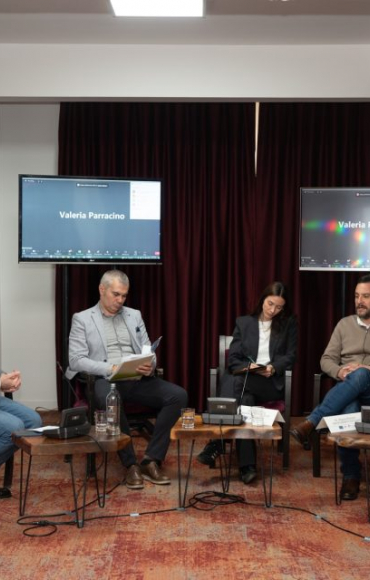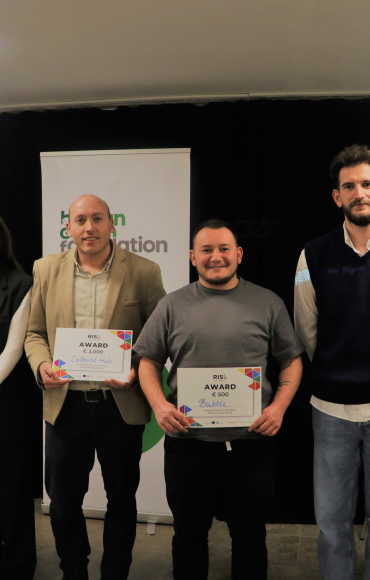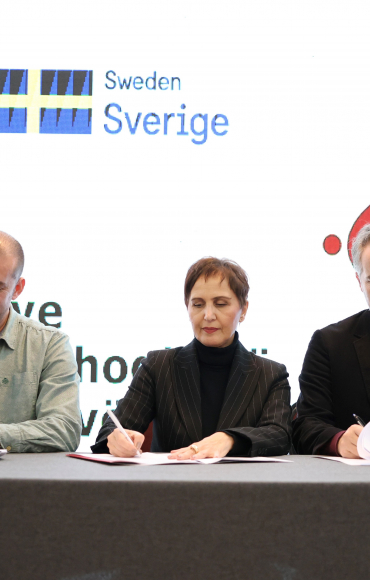23 June 2021
Balkan Green Foundation’s Programmes and Operations Manager, Rinora Gojani, was part of the panel discussion, ‘Voices from the coal regions on clean transition’, held within the framework of the Initiative for coal regions in transition in the Western Balkans and Ukraine which is led by European Commission and its international partners. The panel brought together in discussion also prominent representatives playing a contributing role in leading change within the energy community, Igor Golubović, Mayor of Pljevlja, Montenegro; Sonja Risteska, Project Manager Southeast Europe, Agora Energiewende; Viktor Berishaj, Energy and Climate Policy Coordinator for Southeast Europe, Climate Action Network; Jovanka Bogavac, Member of Parliament, Montenegro.
The panellists enlightened on the current situational standing of the energy sector within the region and presented perspectives on the future endeavours towards a just transition, mapping out the trends, challenges and opportunities within this field, giving emphasis to the importance of channelling efforts towards the decarbonisation of the region and alignment with the European path.
Ms. Gojani, in this regard, gave reference to Kosovo’s reliance on old coal power plants and the repercussions resultant of the existing schematic energy framework. She emphasized the need for a holistic approach that will support capacity for the inclusion of just transition in state and regional agendas and inter-sectorial dialogue mechanisms and socio-economic aspects. ‘Regional as well as national development policies should play a role in the consolidation of coal phase-out objectives that allow the introduction of higher scale renewable energy to the national and regional energy grid.’ She went on to add that ‘If the policy and strategy designs are grounded on the just transition framework that is in line with its decarbonisation goals and existing infrastructure, they will allow the subsistence of an enabling environment for furthering transformational change and transition efforts that address not only environmental, but also economic as well as social concerns concurrently. The development of National Energy and Climate Plan (which is currently under way) in Kosovo provides an opportunity to step up ambitions in this field, define fossil fuel phase-out dates, and update current, unrealistic national plans and pave the way for the implmentation of goals in line with those of the EU. Investments and targets should take into account the final price imposed at the citizens and business communities as well.’
Mr. Golubovic emphasized the prioritization of just transition objectives through the lens of local community inclusiveness in the decision-making processes, underlining a series of challenges including lack of definition on solving environmental issues, coordination amid local and national level, while also underlining the need for funding and awareness raising campaign, the latter resultant to lack of information amongst the citizens on the process. Adding to this, Ms. Bogavac, marked that to overcome these challenges, the region needs to exchange experiences and cooperate in order to gradually advance and align with EU directives.
Ms. Risteska enlightened on the aging fleet of lignite plants and opportunities from Green Deal imply for the modernization of WB6, underscoring the importance for coal phase-out and the economic sensibility of this process. ‘Renewables are ‘no regret’ option and hedge against carbon pricing.’ she marked throughout her presentation.
Mr. Berishaj, gave emphasis to the importance of Sofia Declaration, and alike frameworks that support existing initiatives towards just transition and decarbonisation of economies, while stressing need for legalization of political commitment to follow through with the decarbonisation plans.
The panel concluded on the note that regional and cross-sectorial cooperation are indisputably the mechanisms that will drive transition, underlining the spirit of the Initiative towards energy transition, which aims to promote dialogue across regions and between different actors through the sharing of knowledge and experiences, capacity building between the coal regions in the Western Balkans and Ukraine, and those in the EU. It was also noted that the initiative will help the coal regions gain access to financing for transition projects or programs, based on various resources available by the European Commission, the World Bank, the European Bank for Reconstruction and Development, and the European Investment Bank.
The Initiative is managed by the European Commission and 6 collaborating international partners: the World Bank, Energy Community Secretariat, the European Bank for Reconstruction and Development (EBRD), the European Investment Bank (EIB), Poland’s National Fund for Environmental Protection and Water Management (NFOSiGW), and the College of Europe in Natolin.


